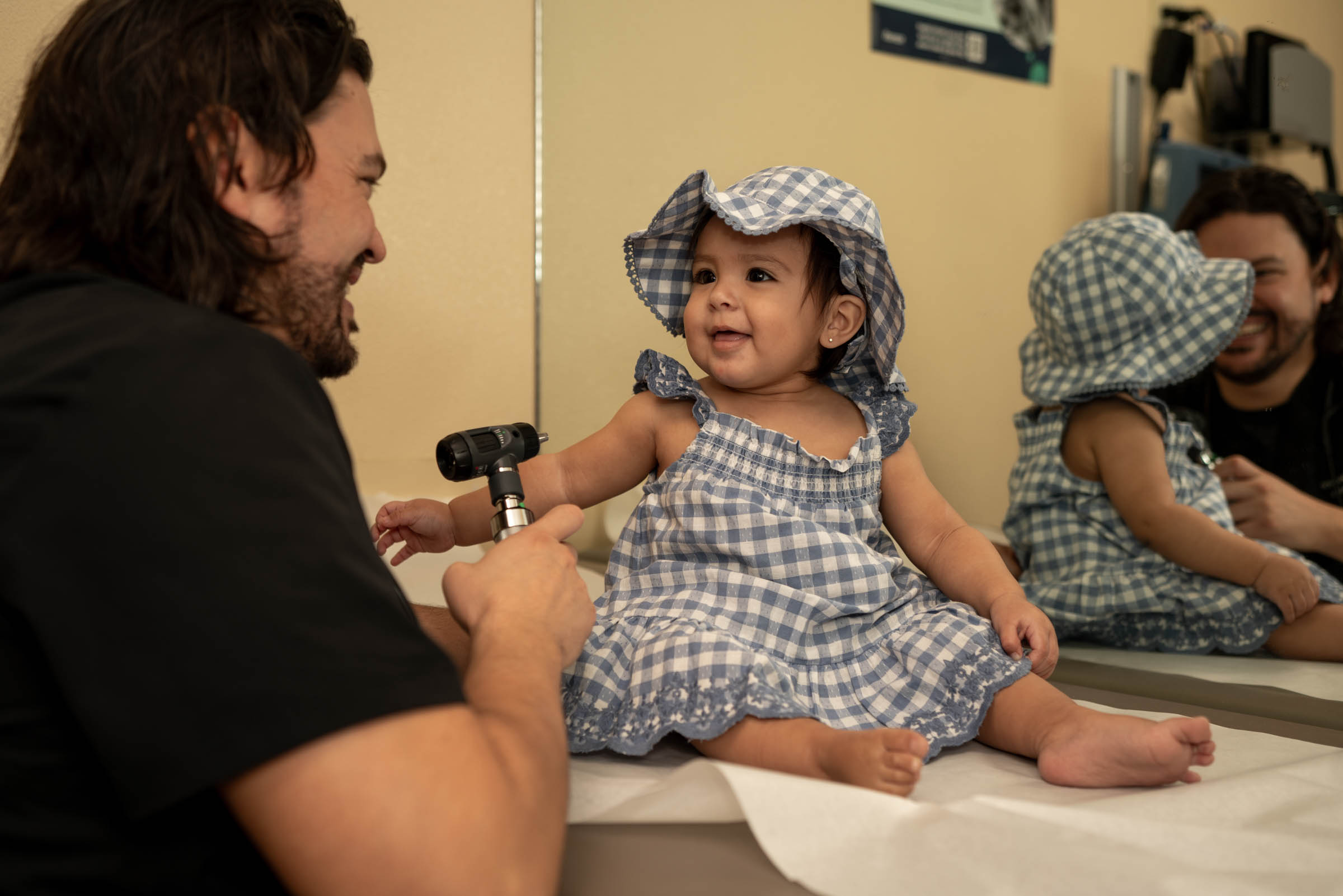
Affordable Health Care in Central California
Cartmill Clinic’s Vision Comes to Life
Tulare County, situated in central California’s San Joaquin Valley, is fortunate to have an abundance of food production, hence why it is considered a breadbasket for the country. However, it is also one of the poorest and most clinically underserved counties in California.
In Tulare, 9 in 10 agricultural workers are Hispanic, and despite contributing to food production and wealth creation in the country, these workers encounter significant barriers in accessing basic health care and family planning services (US Census Bureau Quick Facts 2021). The county faces several key challenges to access health and social services, including a large immigrant population with undefined resident status, language and cultural barriers, and high rates of poverty and unemployment (KFF.org).
In the face of such significant obstacles to people accessing vital affordable health care, Federally Qualified Health Centers (FQHC) are a lifeline, keeping individuals and families in Tulare’s communities, and in communities across California and the country connected to the care they need.
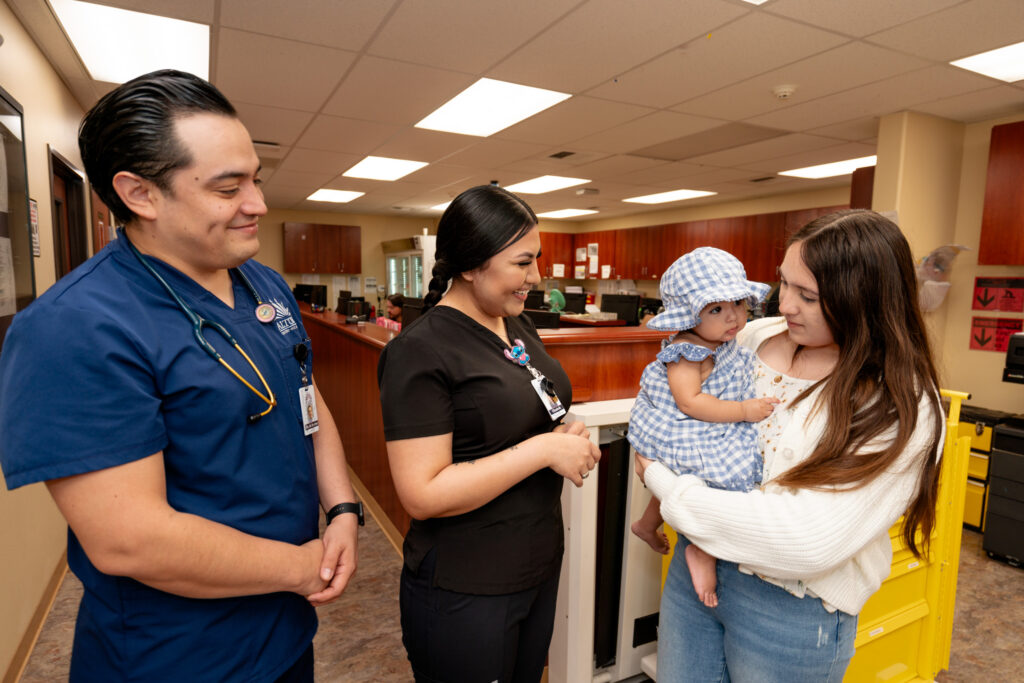
FQHCs Provide Access to Care Where Few Exist or Expensive Options Persist
By design, FQHCs support underserved areas and populations, providing a resource for those who may not otherwise be able to access health care services. Additionally, they offer a sliding pay scale, so that patients can pay whatever they can afford to maintain their health.
“Ninety-five percent of our patients live at or below 200 percent of the federal poverty level. Most of them are Hispanic, with 60 percent being women, and approximately 11 percent living without health insurance,” said Graciela Soto Perez, chief executive officer at Altura Centers for Health in Tulare County. “Without the services that we and other FQHCs provide, many members of our community would not be able to access any health care,” she continued.
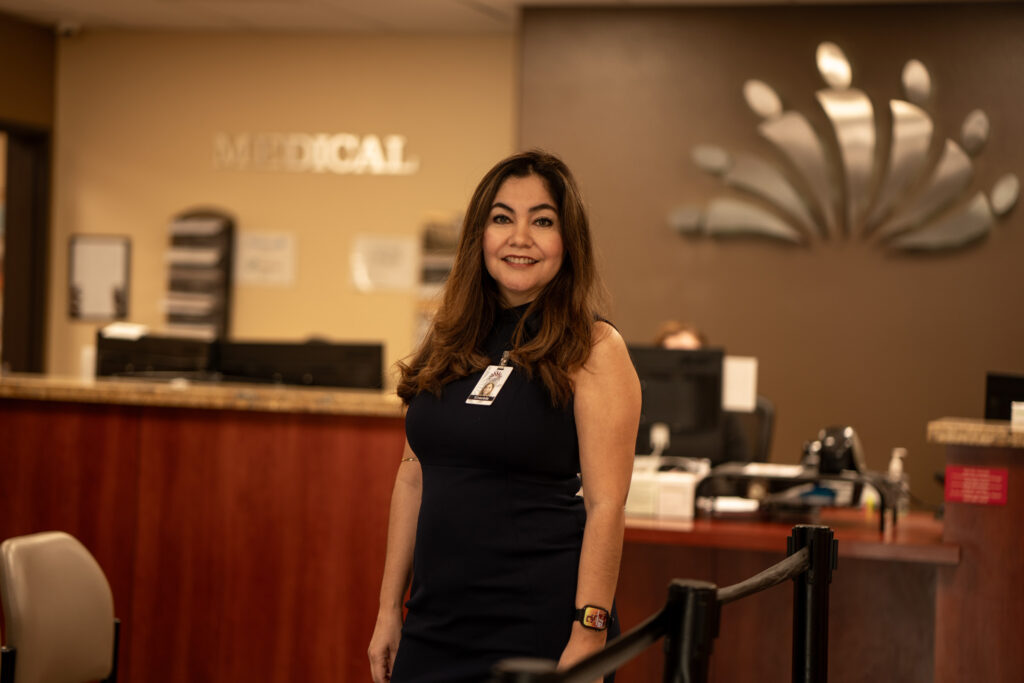
Altura is an FQHC and a Migrant Health Center that has been providing compassionate, quality care to migrant and seasonal agricultural workers and the surrounding community in Central California since 1995. With a focus on the underserved and uninsured, Altura offers pediatrics, internal medicine, family medicine, OB-GYN, and dental care, as well as free patient transportation from their homes to the clinic, health education, health insurance enrollment, and more.
“We are driven by compassion and heart to provide our neighbors with the quality health care that they deserve. The majority of our Board of Directors are patients of Altura, and so the clinic is governed by the community,” said Soto Perez.
In recent years however, demand for health care services at Altura has exceeded capacity. This was due to population growth as residents shift from Los Angeles and San Diego to Central California for a lower cost of living, and to the fact that many private doctors’ offices have been closing and affiliating with hospitals.
“We also get patients from Fresno and Bakersfield, and it became challenging to find room and space to accommodate for more growth. We needed additional space as sometimes, four to five staff members had to fit in a space as small as a little closet,” Soto Perez stated.
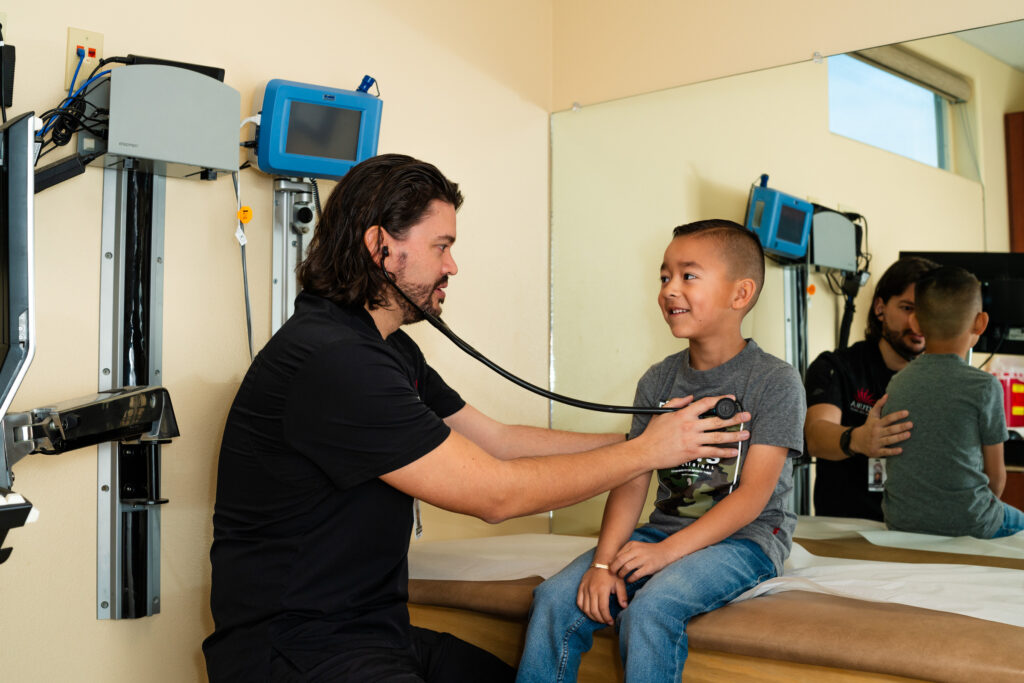
Financing Greater Access to Care for Underserved Patients
Recognizing that it needed to grow in order to continue providing quality care to its community, Altura reached out to Capital Impact Partners, a long-term partner in helping Altura do just that. Capital Impact is part of the Momentus Capital branded family of organizations, including CDC Small Business Finance, and Momentus Securities. Collectively, these organizations offer a continuum of financial, knowledge, and social capital to help local leaders and entrepreneurs build inclusive and equitable communities and create generational wealth.
To help Altura accommodate increased demand and expand vital health services to its growing patient community, Capital Impact Partners provided a $15 million loan to Altura in May 2022, with a contribution from LISC, a partner Community Development Financial Institution (CDFI). This loan enabled Altura to build Cartmill Clinic—a new three-building health clinic located in Tulare County.
While Altura already serves approximately 27,000 patients a year, Cartmill Clinic will enable access to quality health care for an additional 4,000 patients annually when operating at full capacity.
“We have designed Cartmill Clinic’s campus and offerings to cater to our patients’ requests for more pediatrics and OB-GYN exam rooms, reduced wait times to schedule an appointment with a provider, larger waiting rooms, and ample parking space. Having the additional capacity to care for 4,000 more patients per year is a wonderful step towards being better able to support our community,” confirmed Soto Perez.
“The reality is that, if we don’t address the needs of populations living with low incomes, the health and economic challenges they face will continue to hinder them. By expanding access to quality health care, we are investing in the long-term wellbeing of the community and creating opportunities for individuals to thrive,” said Willliam Robison, director, Southern Region & New Markets Tax Credits at Capital Impact.
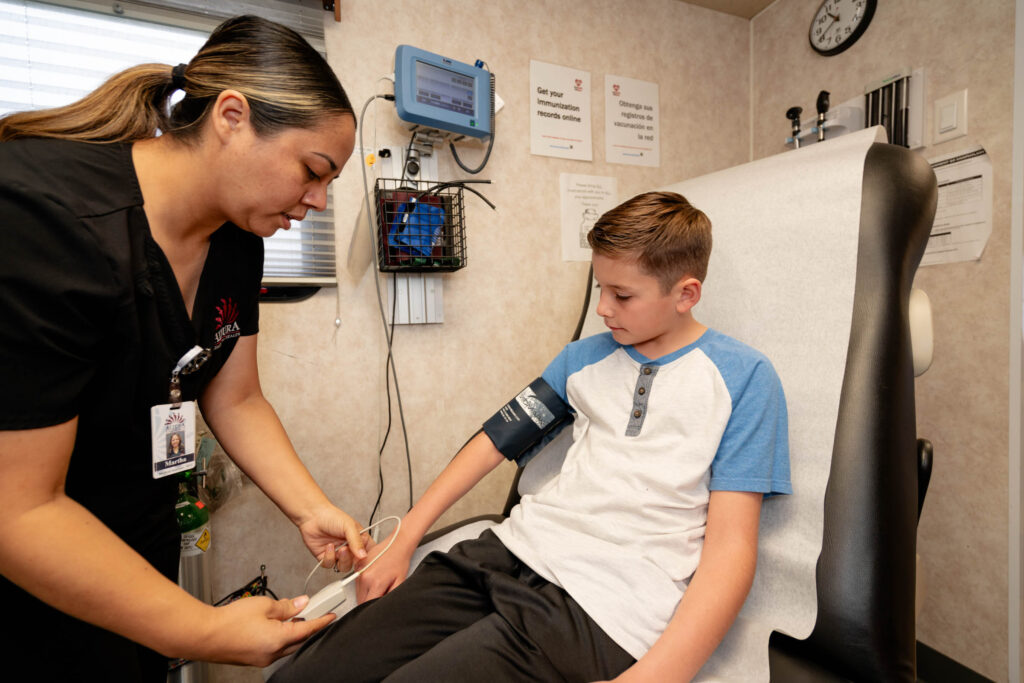
As a mission-driven Community Development Financial Institution, Capital Impact Partners finances a broad range of facilities that deliver social impact to help communities thrive including, but not limited to, community health centers.
“The relationship between Capital Impact Partners and Altura is beyond a typical lender-borrower relationship. We first borrowed from Capital Impact Partners in 2011, and since then, we have continued working together to serve our patients. We have been discussing this project since 2016. It is heartwarming to witness the transformation of a piece of farmland with a strawberry stand into a reputable health clinic that will be completed in summer of 2024,” said Soto Perez.
Working Deep in Community to Support Healthy Childhoods
One of the biggest benefits to the community of the new space is the ability to focus on pediatrics.
“Children make up 30.2 percent of the population in Tulare, making pediatrics one of our highest needs here. Our Cartmill expansion fills the need for increased access to pediatric primary health care for community members,” said Soto Perez.
One of the three buildings at the Cartmill site will house 38 exam rooms dedicated to pediatric primary care, pediatric cardiology consultations, and breastfeeding support. Another building will focus on women’s health, offering OB-GYN services, and the third building will consist of administrative offices.
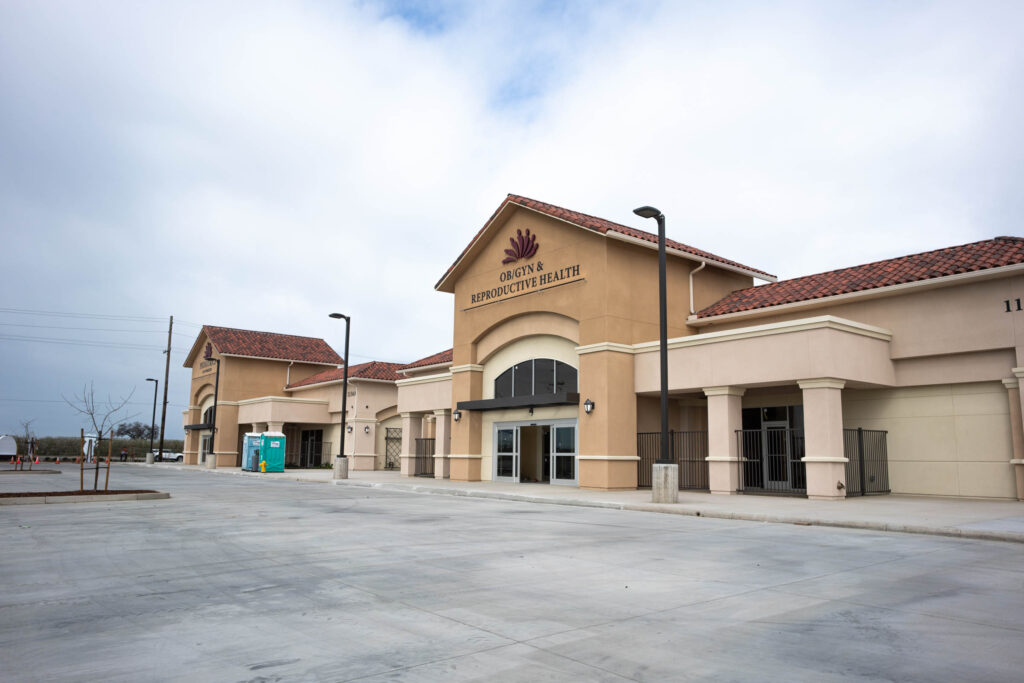
In addition to addressing pediatric health care needs, Altura revised Cartmill Clinic’s floor plan to include two optometry exam rooms, recognizing that children on Medi-Cal had to wait six months for an optometry appointment.
To Soto Perez, children are the future, and Altura closely collaborates with local elementary and high school districts to ensure students’ health care needs are met.
“We feel it is important to be close to the schools. We have two mobile health care units, one serving high schools and the other one serving elementary schools, and we recently added a mobile dental clinic. Hopefully someday, they will grow up wanting to have a career in health care and come back to Tulare to give back,” she added.
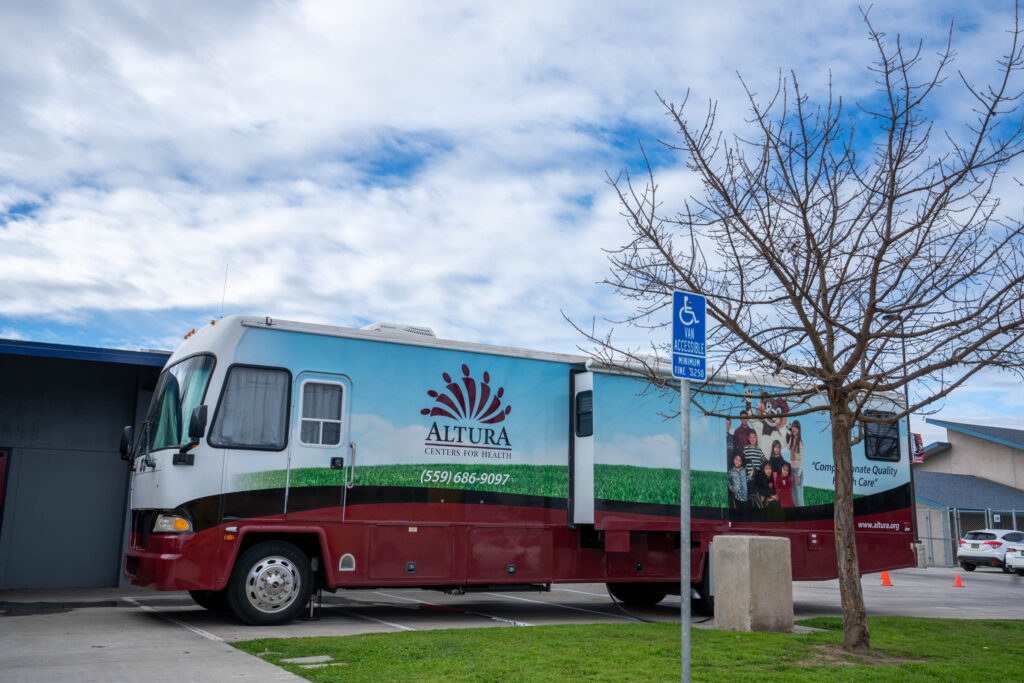
Hopeful, Healthy Prospects
With shortages of physicians and other health care professionals continuing to plague the region, the expansion of FQHCs such as Altura continues to support increased access for underestimated populations.
“My hope and belief is that Cartmill Clinic will empower Altura to continue providing the high-quality health care they’ve been offering Tulare for almost 30 years,” said Robison.
“At Altura, we aim to increase access to compassionate health care for the community we serve,” said Soto Perez. “Success is when we hear from our patients that they have had a good experience, that sickness has been prevented, and their lives have improved.”

Affordable Health Care in Central California: Cartmill Clinic’s Vision Comes to Life
Tulare County, situated in central California’s San Joaquin Valley, is fortunate to have an abundance of food production, hence why it is considered a breadbasket for the country. However, it is also one of the poorest and most clinically underserved counties in California.
Read more about Altura Centers for Health’s inclusive approach to health care.







